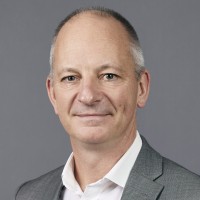Earth Day: paving the way to a sustainable future
To mark the annual event dedicated to raising awareness and mobilising action for environmental protection, Joe Miemczyk, ESCP’s associate dean for sustainability transition, conveys a message of hope and empowerment.
In celebration of Earth Day on April 22nd, Joe Miemczyk, ESCP’s Associate Dean for Sustainability Transition, conveys a message of hope and empowerment for the business school world.
“It is crucial to recognise that we hold the power to enact significant change,” he says ahead of the annual event dedicated to raising awareness and mobilising action for environmental protection. “Our greatest strength lies in shaping the minds of future leaders. We empower them to become catalysts for positive change in the world.”
The first Earth Day was organised in 1970, marking the beginning of the modern environmental movement. Since then, it has grown into a worldwide phenomenon, with millions of people participating in various Earth Day initiatives each year.
Miemczyk himself has been immersed in the world of sustainability for about three decades now. Currently halfway through a three-year term as associate dean for sustainability transition, Miemczyk spearheads initiatives that embed sustainability across ESCP’s operations and curriculum.
His primary responsibilities and objectives for the department revolve around several key areas. “Firstly, on the pedagogical front, the overarching goal is to ensure that every student fully grasps the sustainability challenges through a business lens,” Miemczyk says.
Moreover, he aims to drive a rethink of teaching methodologies across all disciplines, encouraging ESCP faculty members to reassess their approaches in light of the sustainability transition.
Our greatest strength lies in shaping the minds of future leaders. We empower them to become catalysts for positive change in the world.
 Joe Miemczyk
Joe MiemczykAssociate Dean for Sustainability Transition
ESCP Business School
Redefining Pedagogical Paradigms
“This entails a departure from conventional paradigms focused solely on profit maximisation and market dominance,” he says. Instead, Miemczyk advocates for a holistic perspective that acknowledges the imperative for businesses to make a positive impact on society.
His academic journey began with a PhD in sustainability and circular economy, which he completed in 2006 at the UK’s University of Bath. Then he joined Audencia Business School in France, where he spent a decade from 2006 to 2016, primarily focused on teaching and research in supply chain management.
“Back then, there wasn’t a department related to sustainability,” Miemczyk says, “but I championed the integration of sustainability principles into the curriculum.”
Upon joining ESCP in September 2016, he continued his mission to advance sustainability in academia. Initially serving as a professor in sustainability and supply chain management, he assumed the role of associate dean for sustainability transition about 18 months ago.
So how exactly does ESCP weave sustainability into its curriculum and operational fabric?
“We ensure that sustainability is not merely an add-on, but an integral part of every program,” Miemczyk says. Moreover, ESCP is rethinking its pedagogical methods. Rather than relying solely on traditional lecture formats, the school is fostering experiential learning opportunities.
“Students work on projects that tackle real-world sustainability challenges, from devising innovative strategies for urban resilience to exploring contemporary debates on sustainability,” says Miemczyk.
Firstly, on the pedagogical front, the overarching goal is to ensure that every student fully grasps the sustainability challenges through a business lens.
Fostering Collaboration for Change
Moreover, he underscores the importance of developing competencies in sustainability among faculty, not least because the content and teaching methodologies are often dictated by international standards rather than individual business schools.
To address this, he sees it as crucial to collaborate with other institutions, sharing insights and best practices to collectively drive progress in sustainability education.
“For example, through 'Train the Trainers', we bring academics together in collaborative workshops, an opportunity for professors from different disciplines to come together for two days of intensive workshops on embedding sustainability into their curricula,” says Miemczyk. “It’s essentially a retreat where educators can collectively rethink their teaching paradigms.”
Beyond that, ESCP recently embarked on its inaugural carbon footprint analysis. This project involved extensive collaboration across departments and program teams to gather data on all aspects of the school’s operations, including “Scope 3” emissions from travel and procurement. The initial audit revealed an estimated annual carbon footprint ranging from 3,500 to 4,000 tonnes across the five campuses.
“We’re committed to reducing our carbon footprint through targeted interventions like renovation efforts, particularly at older campuses like Turin,” Miemczyk says. “Additionally, by motivating our community to make environmentally conscious choices – such as taking trains instead of planes – we aim to drive big reductions in our carbon emissions.”
However, it’s a major hurdle to break entrenched habits, challenging conventional practices, he adds. “We have to overcome not only resistance to change but also foster a culture of openness and experimentation within the academic community.”
We ensure that sustainability is not merely an add-on, but an integral part of every program.
A call to action
Miemczyk’s journey towards sustainability was deeply influenced by his upbringing, which juxtaposed urban and rural environments throughout his childhood, from London to the west of England and France. “This exposure instilled in me a profound appreciation for nature and an awareness of our impact on it,” he says.
Additionally, his mother, an artist, cultivated his interest in environmental issues through literature, notably Silent Spring by Rachel Carson, which exposed the destruction of wildlife through the widespread use of pesticides. “These readings illuminated the monumental challenges we face in preserving our planet,” recalls Miemczyk.
Academic pursuits further solidified his commitment to sustainability. He pursued a master’s degree in environmental assessment, focusing on how organisations measure and mitigate their environmental footprints.
His first job, in the British automotive industry, involved implementing environmental management systems. “I realised then the pivotal role of business in shaping environmental outcomes,” Miemczyk says. This led him to pursue his PhD at Bath, researching sustainability and responsive supply chains in the automotive sector, leading to significant contributions in academia and beyond.
As we observe Earth Day, Miemczyk’s message of hope and empowerment will resonate deeply with anyone looking to pave the way towards a sustainable future.
We have to overcome not only resistance to change but also foster a culture of openness and experimentation within the academic community.
 Joe Miemczyk
Joe MiemczykAssociate Dean for Sustainability Transition
ESCP Business School
Campuses
